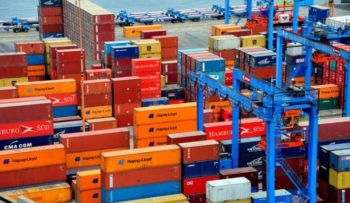
The Baltic Sea ports of Szczecin and Świnoujście, both in north-western Poland, handled a combined 23.5 million tonnes of goods in the first 11 months of this year, a 5 percent increase on the corresponding period of 2016.
Monika Woźniak-Lewandowska, representing the ports’ joint management, said, “There is evidence to indicate that by the end of the year these ports will have handled 25 million tonnes of goods.”
There were double-digit increases in the handling of oil and ores, which rose by 52.5 percent and 50.3 percent respectively. Meanwhile, the volume of coal passing through the ports declined by 33 percent, while that of cereals fell by 25 percent.
Woźniak-Lewandowska said, “The increase in the shipment of oil by more than half is due to greater demand … [These ports] are a natural transit point for businesses in Poland as well as in [neighbouring] Slovakia and the Czech Republic.”
She pointed to the recent opening of a liquefied natural gas (LNG) terminal in Świnoujście as one of the drivers behind the increase in traffic. The LNG terminal allows Poland to import gas from countries such as Qatar, helping diversify sources of energy.
Woźniak-Lewandowska added, “The fall in coal shipments is a trend that has been visible for the past two or three years. The fall in cereal shipments by 25 percent is a major surprise … This result is an outcome of weak crop yields in 2017.”
Copyright Ships & Ports Ltd. Permission to use quotations from this article is granted subject to appropriate credit given to www.shipsandports.com.ng as the source.
